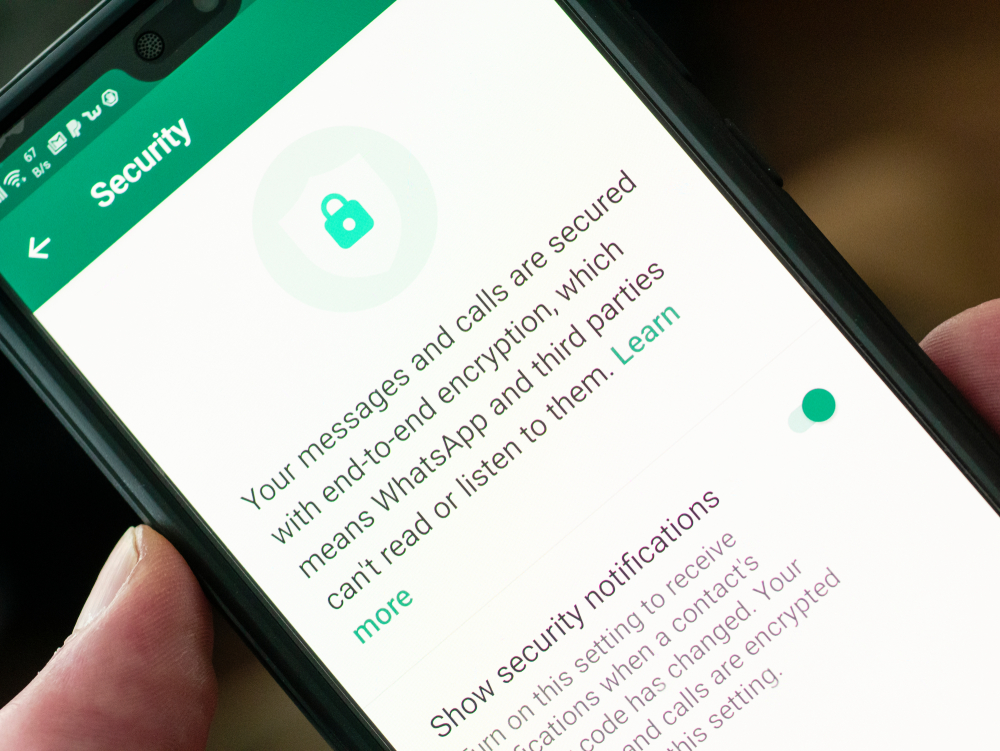Hackers are using fake messages to break into WhatsApp accounts
Hackers are posing as friends to gain users' trust


WhatsApp users have been warned of a scam that involves a hard-to-spot malicious message that appears to come from someone on your contact list.
The scam works when hackers send a user a code via text on their smartphone, followed by a WhatsApp message from someone on their contact list. When the “friend” asks the recipient to share the code, the hacker can easily access their WhatsApp account.
Researchers observed similar attacks earlier this year, but it seems users are once more in hackers’ sights.
Burak Agca, a security engineer at Lookout, told ITPro the incident reflects how easy it is for attackers to acquire users' first factor of authentication, username, and password.
“Messaging apps present a number of challenges to individuals and corporate data security. The rise of significant data breaches across high profile organizations is providing threat actors with vast pools of user accounts to exploit via phishing attacks on messaging apps using those stolen credentials,” Agca said.
RELATED RESOURCE

Managing security risk and compliance in a challenging landscape
How key technology partners grow with your organisation
“Added to that, we see seismic events like the pandemic driving mobile device usage, and high-profile incidents such as the personal information of members of Parliament from the UK Conservative party app in recent years, further exacerbating the issue.”
Agca added that iOS and Android devices had harbored a significant security gap recently, creating a lack of protection from exposure to malicious links across emails, web pages, apps, SMS, and WhatsApp.
Get the ITPro daily newsletter
Sign up today and you will receive a free copy of our Future Focus 2025 report - the leading guidance on AI, cybersecurity and other IT challenges as per 700+ senior executives
“That gap led to a proliferation of 'surveillanceware' delivered via exploitation of messaging server infrastructure, chained with mobile app and operating system vulnerabilities, resulting in a catastrophic failure in the onboard security measures in place. On average, 40% of versions of WhatsApp used by enterprises are vulnerable. That represents a significant gap in mobile security where patch management solutions focused on mobile devices are not in place,” said Agca.
The news comes as Check Point researchers warned of a new type of malware in the Google Play store that can automatically reply to all incoming WhatsApp messages with messages containing malicious links or text.
By replying to incoming WhatsApp messages with a payload from a command-and-control (C&C) server, a hacker could distribute phishing attacks, spread further malware, spread false information, or steal credentials and data from users’ WhatsApp accounts and conversations.
Rene Millman is a freelance writer and broadcaster who covers cybersecurity, AI, IoT, and the cloud. He also works as a contributing analyst at GigaOm and has previously worked as an analyst for Gartner covering the infrastructure market. He has made numerous television appearances to give his views and expertise on technology trends and companies that affect and shape our lives. You can follow Rene Millman on Twitter.
-
 Why keeping track of AI assistants can be a tricky business
Why keeping track of AI assistants can be a tricky businessColumn Making the most of AI assistants means understanding what they can do – and what the workforce wants from them
By Stephen Pritchard
-
 Nvidia braces for a $5.5 billion hit as tariffs reach the semiconductor industry
Nvidia braces for a $5.5 billion hit as tariffs reach the semiconductor industryNews The chipmaker says its H20 chips need a special license as its share price plummets
By Bobby Hellard
-
 WhatsApp to combat internet blackouts with proxy server support
WhatsApp to combat internet blackouts with proxy server supportNews The newest version of the communication platform offers a new way to bypass state-imposed internet limitations, but concerns remain over IP visibility
By Rory Bathgate
-
 Signal hires former Google manager Meredith Whittaker as first president
Signal hires former Google manager Meredith Whittaker as first presidentNews An outspoken critic of the dangers of AI, Whittaker promises to keep Signal users out of tech giants' "surveillant gaze"
By Rory Bathgate
-
 What should we do about encrypted messaging apps?
What should we do about encrypted messaging apps?In-depth From WhatsApp to Telegram to Signal, the growth in use of end-to-end encryption messaging apps is soaring. But do their positives outweigh the risks of them being used by 'bad actors'?
By Jonathan Weinberg
-
 WhatsApp secures permission to challenge €225 million GDPR fine
WhatsApp secures permission to challenge €225 million GDPR fineNews The company has been granted the power to challenge Ireland’s fine over the way it shares user data
By Zach Marzouk
-
 WhatsApp launches multi-device beta with support for end to end encryption
WhatsApp launches multi-device beta with support for end to end encryptionNews An infrastructure change means up to four devices can be attached to a single account without compromising security or privacy, company claims
By Bobby Hellard
-
 WhatsApp flaw leaves users open to 'shoulder surfing' attacks
WhatsApp flaw leaves users open to 'shoulder surfing' attacksNews Hackers can gain full access to individual’s WhatsApp accounts using just their phone number
By Keumars Afifi-Sabet
-
 WhatsApp co-founder tells Facebook users to delete their accounts
WhatsApp co-founder tells Facebook users to delete their accountsNews Brian Acton joins ‘deletefacebook’ calls
By Jane McCallion
-
 France: WhatsApp has no legal basis to share data with Facebook
France: WhatsApp has no legal basis to share data with FacebookNews Data privacy authority says WhatsApp has breached the Data Protection Act
By Dale Walker